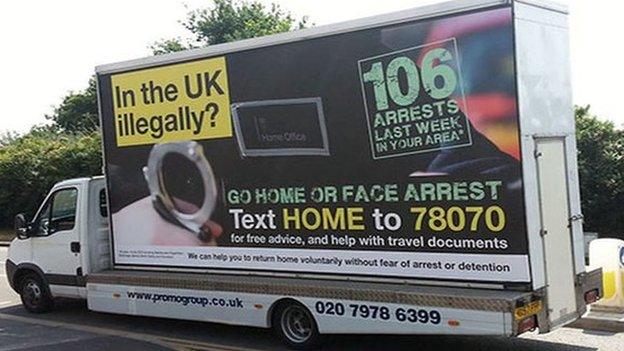Coronavirus: Undocumented workers an 'invisible public health risk'
- Published
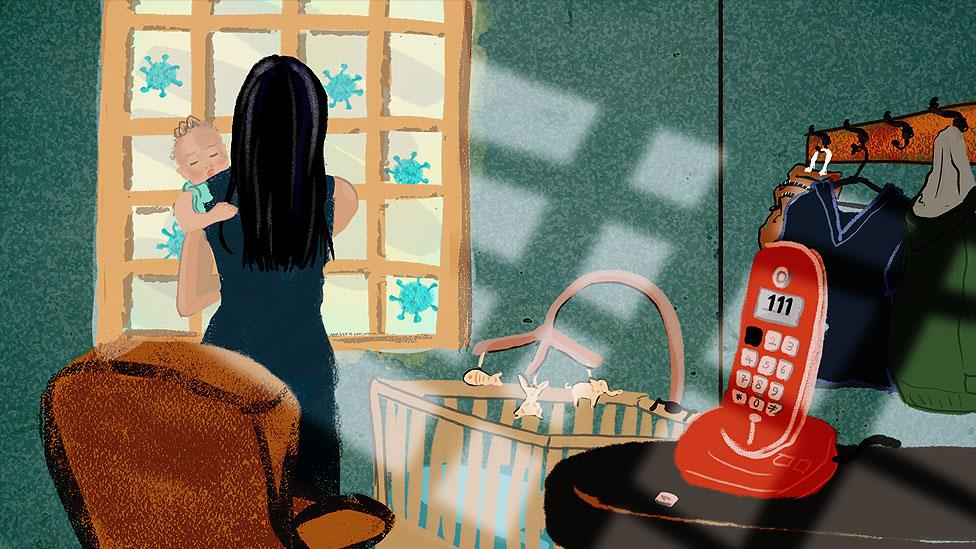
"Clara" said she was too scared to call the 111 helpline if she gets sick
There are an estimated one million undocumented workers in the UK. The coronavirus pandemic has presented them with a new set of challenges and fears over how to maintain an income, remain healthy or even stay alive.
On an old square television in a shared house in a suburb of London, Filipina nanny Carla watches the government coronavirus daily briefings well aware the updates are not intended for her.
Carla, whose name - along with others in this article - has been changed to protect her identity, is among an estimated one million undocumented workers living in the UK.
Of the 12 tenants living in the house, only one has the right to work in the country - a nurse working for the NHS on the front line of the pandemic.
"We are worried for her and worried for ourselves," Carla said over an encrypted messenger app.
'I fear for my family'
She was speaking over her six-month-old baby's cries and sporadically broke down in tears herself.
"I fear for my family. If I get sick I won't have anywhere to self-isolate," she told the BBC.
For seven years Carla has worked illegally as a domestic worker in London's grey economy, caring for the elderly and working as a nanny for various families.
Before the lockdown she would send part of her salary to her relatives in the Philippines.
With no access to the financial assistance announced by the UK government, Carla found herself down to her last £3.
"If I get sick, I'm afraid to phone the 111 helpline. They will find out that I don't have papers," she said.
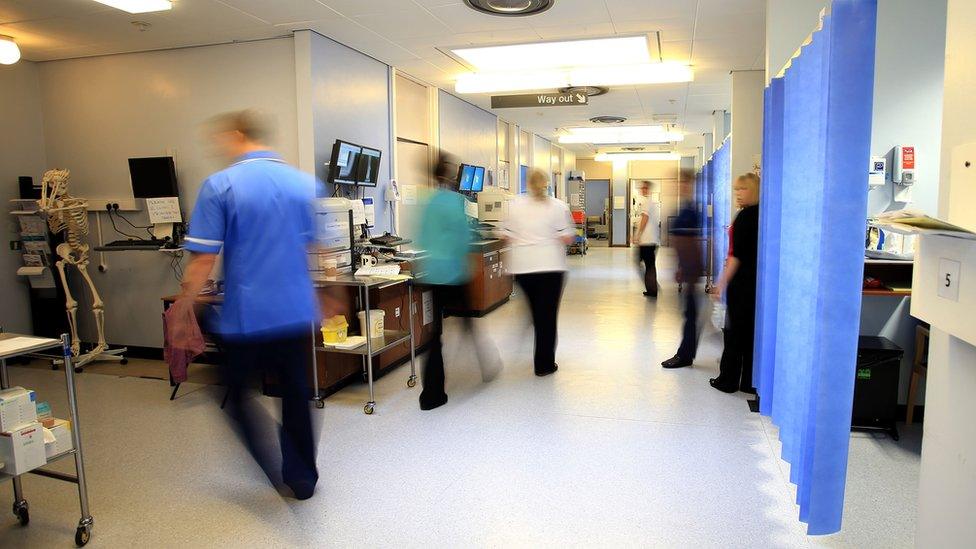
Many undocumented workers fear seeking medical help fearing they will face immigration enforcement if identified
As the lockdown eases across England, charities have said they fear London's undocumented workers could be among the most vulnerable in society.
Despite reassurances from the government that the NHS would not carry out immigration checks in hospitals, many undocumented workers have worried about seeking medical help.
"The consequences have been tragic," said Susan Cueva, from Kanlungan Filipino consortium, an alliance of Filipino nationals in the UK.
"Some refuse to get help despite the fact their situation is deteriorating."
Risk of starving
Ms Cueva estimated there could be as many as 10,000 undocumented Filipino carers and domestic workers in the country.
Charities fear they represent an invisible public health risk.
Undocumented workers are at risk not only of contracting Covid-19, but also starving because of the crisis created by the pandemic.
"We are also front-line workers," said Shell, an undocumented carer from the Philippines.
"We know it's against the law. We do the work people don't want to do.
"We try our best not to be a burden for the country. If they give us a chance to work we will pay taxes."
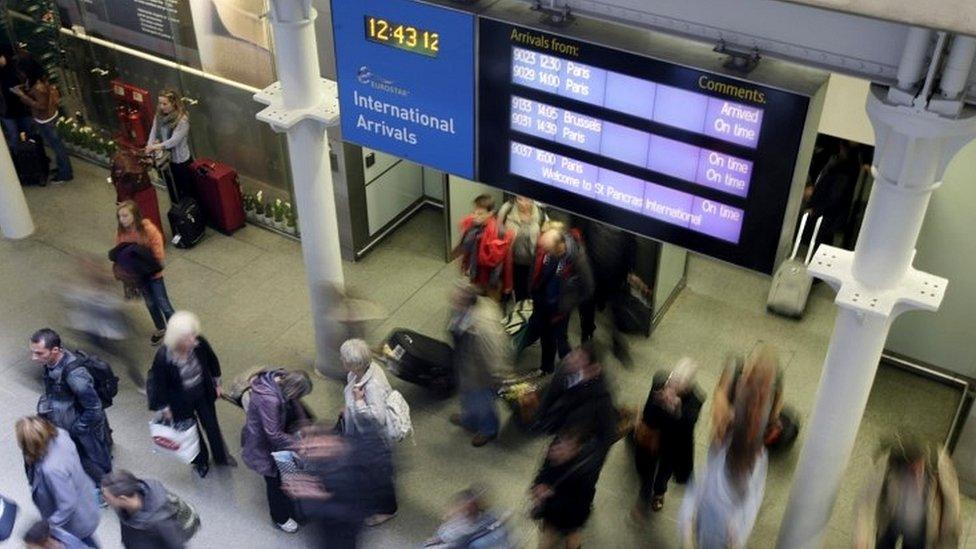
Many undocumented workers enter the UK on legal visas
There are no exact numbers of undocumented workers living in the UK.
In 2017, Pew Research Centre claimed there may have been between 800,000 and 1.2 million unauthorised migrants living in the UK.
"The government lost count a long time ago and never wanted to confront the question of numbers," said Dr Rhetta Moran from Rapar, a human rights charity.
She has been campaigning for the government to provide housing and healthcare for all during the pandemic, irrespective of their status.
Undocumented workers have varied back stories and experiences.
Some have overstayed their visas and begun working in the illegal economy.
Many travelled to the UK to seek asylum but had their applications rejected. Some have been smuggled into the country.
"I was trafficked multiple times and finally boarded a ship which took me to the UK," said Mrs Zhao, a restaurant worker, who has lived in the UK for 12 years.
She spoke to the BBC through the Chinese Information and Advice centre, under the condition of anonymity.
During the lockdown many have been relying on communities for financial support.
"I am glad that I managed to get this far," she said.
"Most of the time my mind is blank but luckily my friends who are in similar situations are being very supportive and caring."
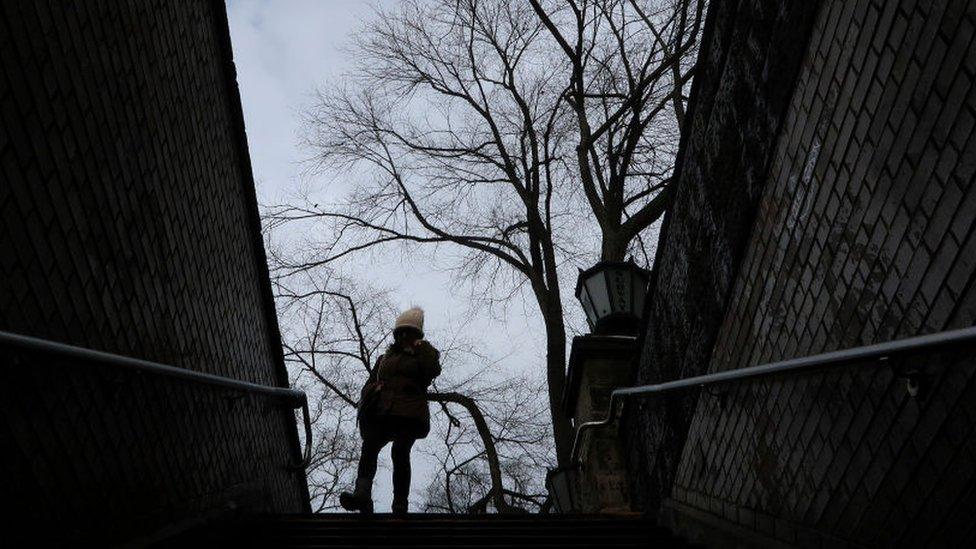
Undocumented workers could become more vulnerable to modern-day slavery because of lockdown
Jean has been self-isolating in a west London house since the lockdown began in March.
The Jamaican national has been living in the UK for more than a decade and pays rent to a family of five who sublet her a tiny room.
She entered the country on a student visa and worked part time to support her studies but when she changed colleges her visa application was rejected and Jean became an undocumented worker.
Via WhatsApp she tells me: "I sometimes feel like I'm British. I talk like them.
"Now I feel if I could run away from here I would, but borders are closed and there are no flights.
"Even if there were flights and if I went home they would treat me so badly and say 'you brought the virus into the country'."
'I don't know how to survive'
As the lockdown eased Jean said she became aware of the risks of returning to work.
"I think now I am becoming more vulnerable to everything," she said.
Last month the domestic worker was called by her long-term employer and asked to return.
She was paid one day's wages for three days of work. After complaining she was asked not to return.
"I don't know what to do. I don't want to get trapped again. I don't know how to survive."
She now faces a greater risk of exploitation and fears she could fall victim to modern-day slavery.
With no income for the duration of the lockdown and no government support, she says she must now accept more risky work.
Jean said she felt unsafe in her own home and her landlord was demanding she paid a lump sum of rent owed that she did not pay during the lockdown.
"He keeps banging on my door and asking me to give him money," she said.

SCHOOLS: When will children be returning?
EXERCISE: What are the guidelines on getting out?
THE R NUMBER: What it means and why it matters
AIR TRAVELLERS: The new quarantine rules
LOOK-UP TOOL: How many cases in your area?

Charities have said illegal workers faced new risks of exploitation when returning to employment.
And charity groups fear undocumented migrants would now face challenges beyond the coronavirus.
"As the coronavirus pandemic continues to unfold, many workers have already lost their jobs," said Matt Friedman from Mekong Club, an anti-slavery charity.
Natural disasters around the world usually lead to a rise in modern-day slavery and human trafficking, Mr Friedman says.
He expects to see a rise in the number of people trafficked into cities like London once borders reopen while illegal migrants face greater exploitation.
Mr Friedman says: "With few options available to them, these people often become desperate.
"This combination of factors significantly increases the potential for human traffickers to take advantage of this vulnerability."
A Home Office spokesperson said: "Illegal migrants are not eligible for mainstream benefits.
"However, we have made sure that coronavirus treatment is available on the NHS for free, regardless of someone's immigration status.
"Local authorities may provide a basic safety net especially in cases involving children."
- Published14 November 2019
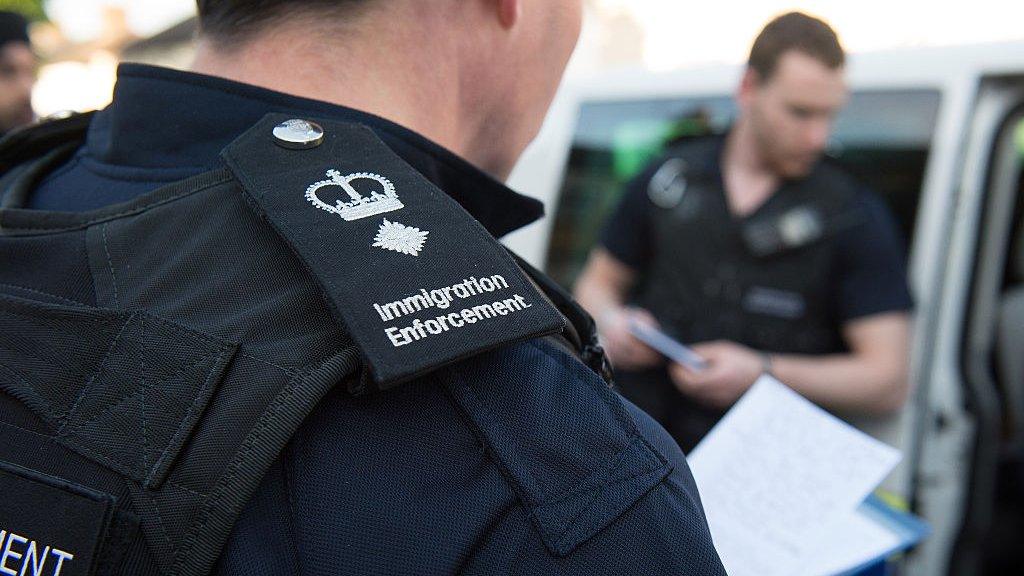
- Published12 June 2019
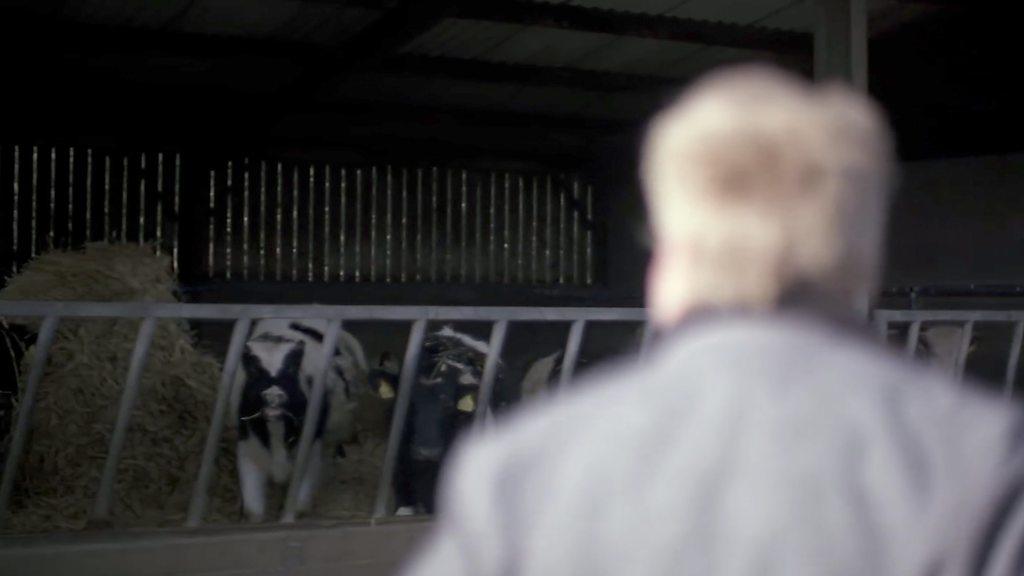
- Published28 April 2018
